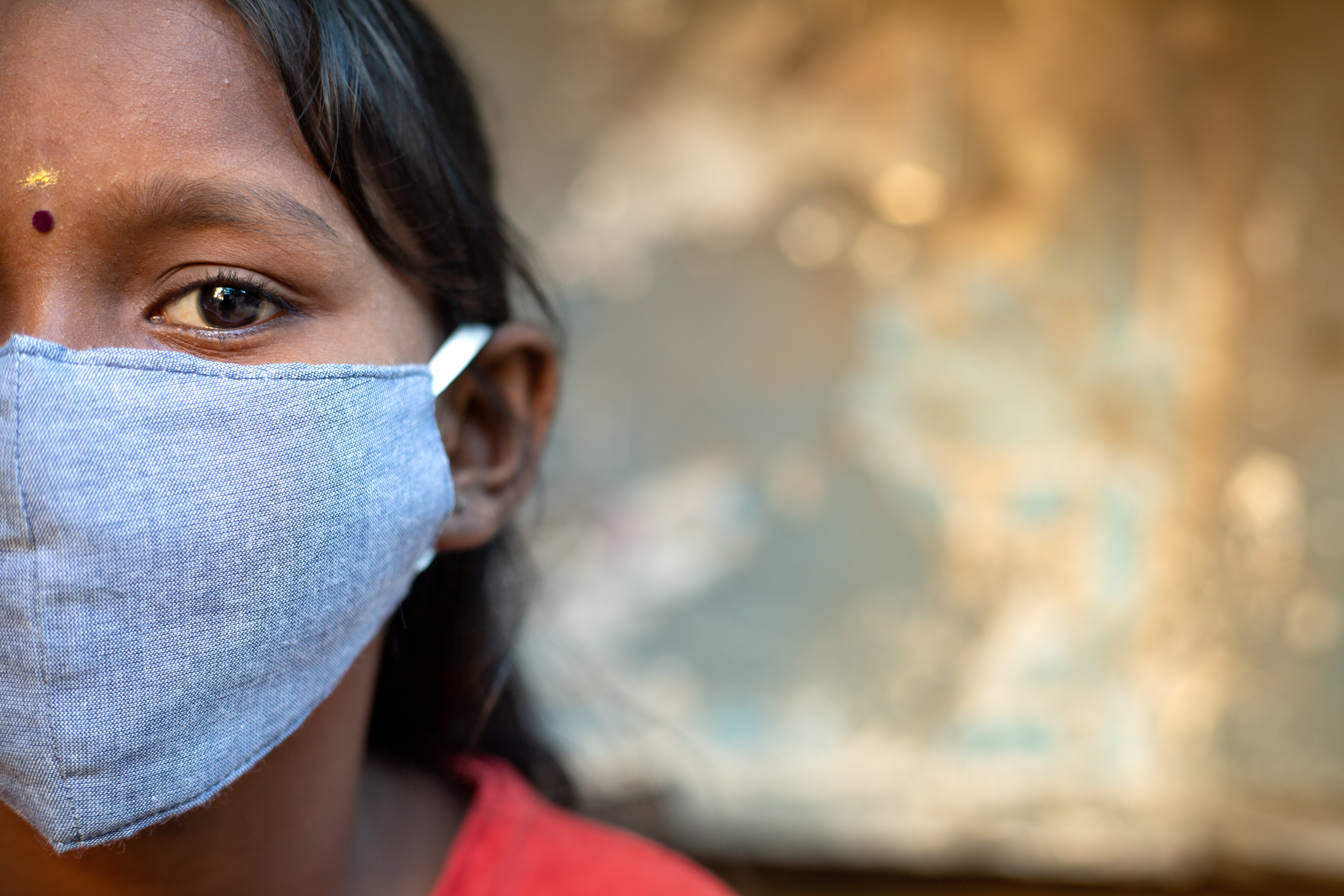Emerging Child Protection Issues in India Amid COVID-19 Pandemic Pose a Huge Threat to Youth
Media Contact :
June 10, 2021
Senior Public Relations Manager
[email protected]
m 404-735-0871
Media Contact :
June 10, 2021
Senior Public Relations Manager
[email protected]
m 404-735-0871

CHENNAI (June 10, 2021) – India’s National Commission for the Protection of Child Rights (NCPCR), reports that 3,632 children have lost both parents and 26,176 children have lost one parent to COVID-19 between April 1, 2020 to June 5, 2021. Though the central and state governments have come forward to support children affected by the COVID-19 pandemic, World Vision raises concern about worrying child protection risks.
World Vision fears that there may be underestimation in COVID death toll. Reasons include lack of COVID 19 testing facilities in rural areas, poor health seeking behavior and delay in getting medical care. Without testing and consequently without hospitalization (for lack of beds in hospital) many were not counted among COVID-19 deaths.
It is reported that deaths due to co-morbidities were not counted as COVID-19 deaths. So, many children who have lost their parents to COVID-19 may not be recognized as COVID-19 orphans/semi orphans, which means they will not be considered for government relief programs. Also, there is a high probability that marginalized children from rural areas are at higher risk of being left out.
There are many reported cases of messages with details of children circulating on social media encouraging people to adopt, circumventing all the well-established legal procedures for adoption. Children who are illegally adopted are at-risk of violence. Children who have lost their primary caregiver, especially a primary bread winner, or children from women-headed families, are at risk of being forced into child labor, early marriage and human trafficking.
“We are very concerned with the rising issues of child protection in the country made worst by the pandemic,” said Joseph Wesley, head of World Vision India’s anti-trafficking program. “As we continue to fight COVID, we should not overlook the need of the 40 percent of the population who are our future. While vaccine remains non-available to them, it becomes the adult’s or caregiver’s duty to be vaccinated and ensure that all children are protected. All stakeholders should come together to end violence against children and create a protective environment for them to thrive.”
World Vision urges the Indian government to bring children affected by the pandemic under their care, observation and monitoring before they are given custody to extended family members or caregivers. World Vision also believes that, it is the responsibility for all stakeholders to work with families and communities in building awareness, identifying children in need and refer them to government child protection agencies (Child Welfare Committees) to prevent illegal adoptions or trafficking.
World Vision is committed to support children in need and continues to extend field support through medical assistance, psychosocial care, educational needs and livelihood opportunities to families.
World Vision has been working relentlessly on the ground during the second wave of COVID-19 to ensure that the worst affected people get life-saving medical aid, hygiene kits and psychosocial support.
World Vision is supporting select hospitals and health care centers in 118 locations by upgrading the health facilities, especially in rural areas. Over 4,500 PPE Kits, 2,468 pulse oximeters, 450 beds and 369 oxygen concentrators have been distributed to hospitals and health care centers in Rajasthan, Delhi, Tamil Nadu, Uttar Pradesh and Karnataka. World Vision is also providing thermometers and other essential non-medical supplies.
About World Vision:
World Vision is a Christian humanitarian organization conducting relief, development, and advocacy activities in its work with children, families, and their communities in nearly 100 countries to help them reach their full potential by tackling the causes of poverty and injustice. World Vision serves all people regardless of religion, race, ethnicity, or gender. For more information, please visit www.WorldVision.org/media-center/ or on Twitter @WorldVisionUSA.